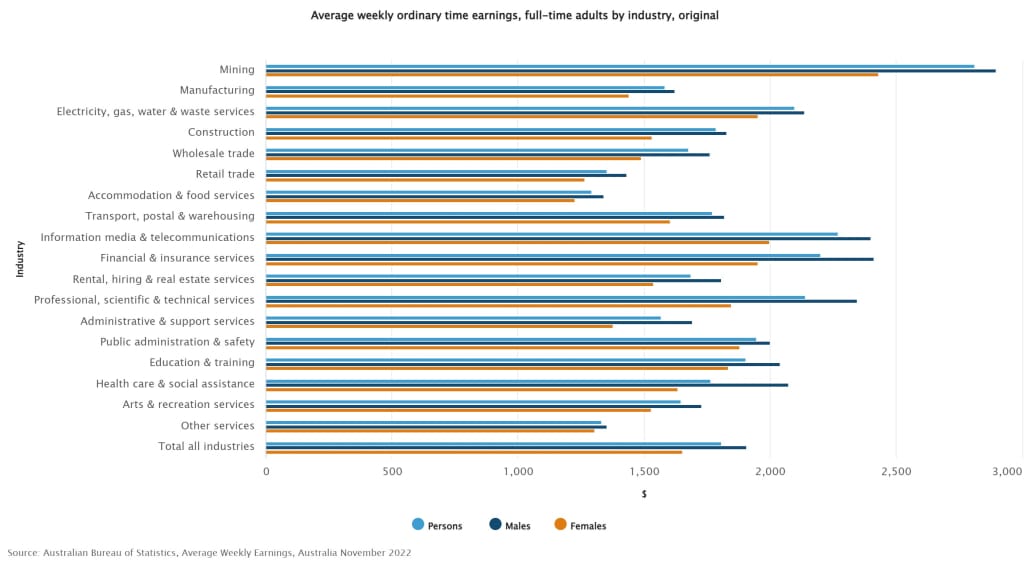Understanding the Minimum Wage in Australia
Australia has a minimum wage. You must be paid at least this amount – it’s the law!
The minimum wage ensures fair compensation for workers across various industries. In Australia, the minimum wage is determined by the Fair Work Commission and undergoes a systematic annual review.
This article aims to provide a comprehensive overview of the minimum wage in Australia, including recent updates, and its impact on employees and the economy.
What is the Minimum Wage?
The minimum wage sets the baseline pay rate that employers must legally provide to their workers. It ensures that employees receive a fair and adequate income for their labour, regardless of industry or occupation.
Determining the Minimum Wage in Australia
The Fair Work Commission conducts annual wage reviews to determine the national minimum wage. This process involves considering economic factors, living standards, industry conditions, and feedback from various stakeholders. The Commission aims to strike a balance between supporting workers’ livelihoods and considering the economic viability of businesses.
Award minimum wages
In Australia, employers are required to adhere to ‘awards’ when compensating their employees. These awards are official documents that establish the minimum wage rates and employment conditions for over 100 industries and occupations.
The award rates specify the appropriate remuneration for workers in specific industries. Familiarizing yourself with these rates will help ensure that you receive fair compensation. If you are unsure about which award applies to your occupation, you can utilize the ‘Find my award’ tool for guidance here: https://services.fairwork.gov.au/find-my-award
Adjustments and Annual Reviews
To account for changing economic conditions, the minimum wage is subject to regular reviews. The Fair Work Commission assesses various factors, such as inflation, productivity, and industry-specific considerations, during these reviews. Adjustments are made to maintain a fair and equitable wage system.
The national minimum wage increase
The Australian Government’s Fair Work Commission has announced an increase in the national minimum wage.
Following the Fair Work Commission (FWC) Annual Wage Review 2022-23, the Australian national minimum wage has now increased to $882.80 per week or $23.23 per hour from $21.38 per hour. This increase will come into effect from the first full pay period commencing on or after 1 July 2023.
How can you find out your minimum wage?
Search “FWO Pay and Conditions Tool”: This is a tool from the Fair Work Ombudsman. It will help you find out the minimum wage for your work.
Median Wage
While, average and median are both ways of calculating the “middle” of a set of data, they have slight differences.
The ‘average’ is calculated by adding together all the values in a dataset and dividing by the total number of values. It can be sensitive to outliers, meaning that very large or very small values can greatly influence the average.
Whereas, median, is the middle value in a dataset when it is sorted in ascending order. It is not affected by outliers and gives a better representation of the “real” centre of the data.
The mean is higher than the median value because of a small number of people with very high earnings.
On average, salaries in Australia can range from 1,917 AUD per month all the way up to 33,750 AUD per month.
The median salary in Australia in 2023 is 6,650 AUD (USD 4,420) per month.
The median salary refers to the middle value of all the salaries considered. In other words, around half of the population in Australia earns less than 6,650 AUD per month, while the other half earns more.
Impact on Workers
The minimum wage plays a vital role in ensuring workers receive fair remuneration. It helps protect individuals from exploitation and provides a decent standard of living. A fair minimum wage contributes to reducing income inequality and improving the overall well-being of workers and their families.
Impact on Businesses and the Economy
Setting a minimum wage involves considering the economic impact on businesses. Critics argue that higher minimum wages may burden businesses and lead to reduced employment opportunities. However, proponents suggest that fair wages contribute to increased consumer spending, employee productivity, and reduced turnover, ultimately benefiting businesses and the economy as a whole in the long run.
Conclusion
The minimum wage in Australia serves as a crucial pillar in ensuring fair compensation for workers. It provides a basic standard of living and contributes to a more equitable society. Regular reviews help strike a balance between supporting workers’ rights and the economic sustainability of businesses.
However, it’s important to note that minimum wage rates can vary depending on factors such as age, level of experience, and industry. Additionally, certain industries and occupations may have their own minimum wage rates outlined in specific awards or agreements.
To obtain the most up-to-date and accurate information regarding the minimum wage in Australia, it is advisable to consult the official website of the Fair Work Commission or relevant government sources.
Related: 186 visa exemptions







Upcoming Immigration Changes 2026
New 4-Tier Invitation System for 189 Visa
Australian Immi App for Biometrics
Remote Work and Travel Now Clearer for 491, 494 and 489 Regional Visa Holders
New 186 TRT Rule Adversely Impacts Medical Practitioners’ PR Pathway